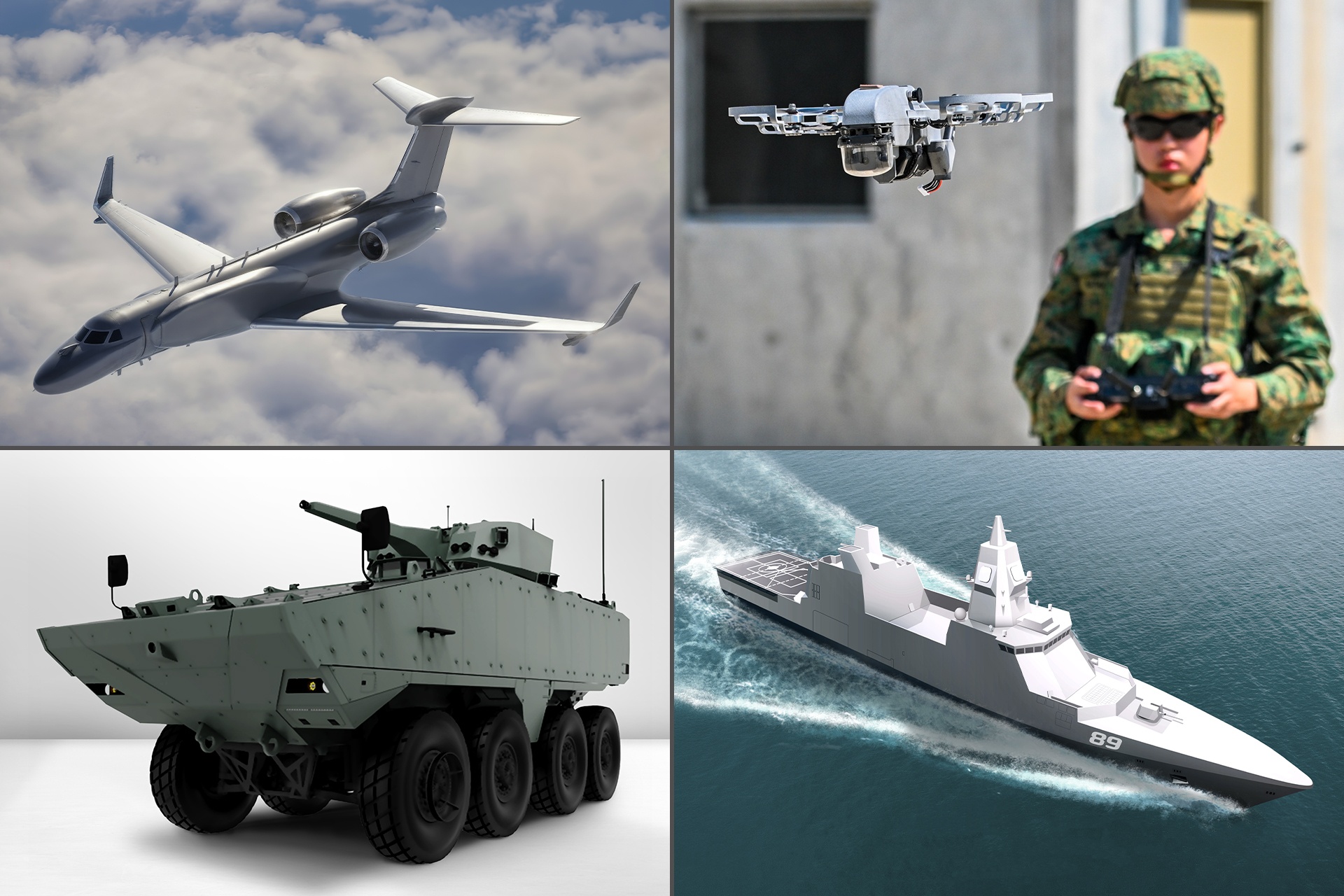OPS & TRAINING
Basic drone skills, more personalised training for recruits
04 Aug 2025
In his first visit to BMTC as Minister for Defence, Mr Chan Chun Sing observed enhancements to training and support to better prepare soldiers for modern operations.
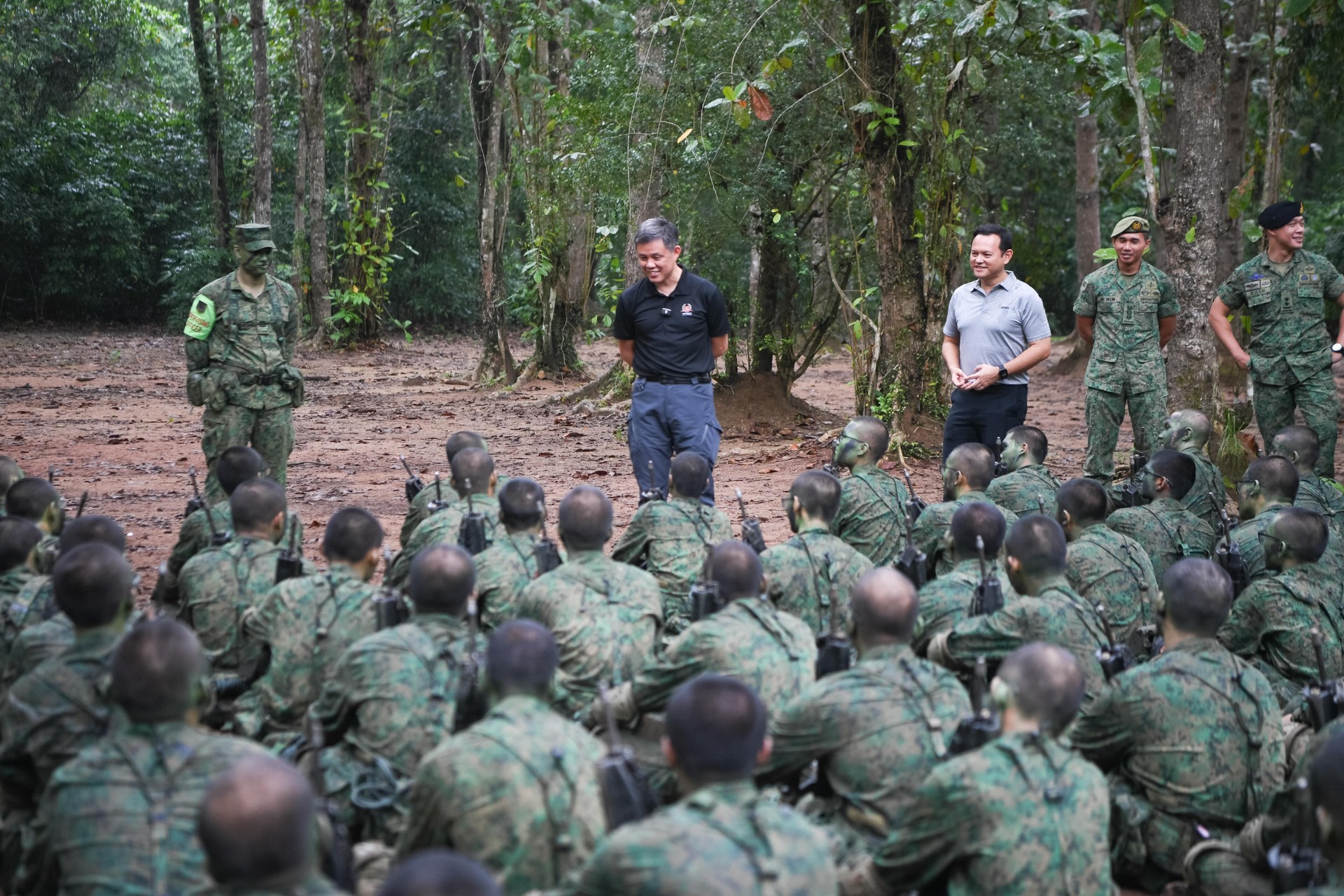
Anyone who has been through Basic Military Training will know that good weather is something that all solders hope for, especially during Field Camp. This was not to be for the recruits of Raven Company.
Wet weather and muddy ground did little to dampen Field Camp training for them, as Minister for Defence Chan Chun Sing came to observe their training as part of his visit to Basic Military Training Centre (BMTC) which is located on the island of Pulau Tekong.
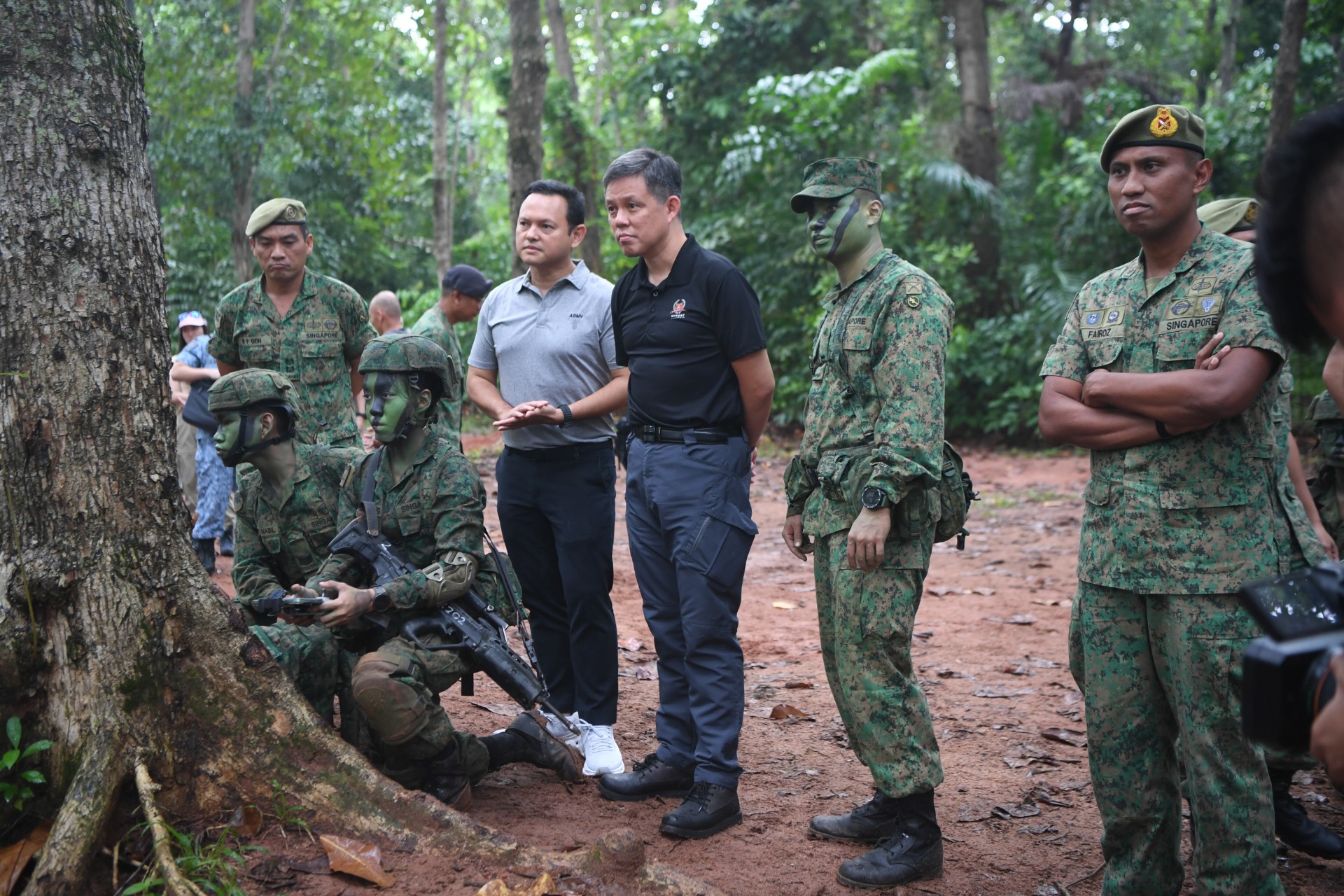
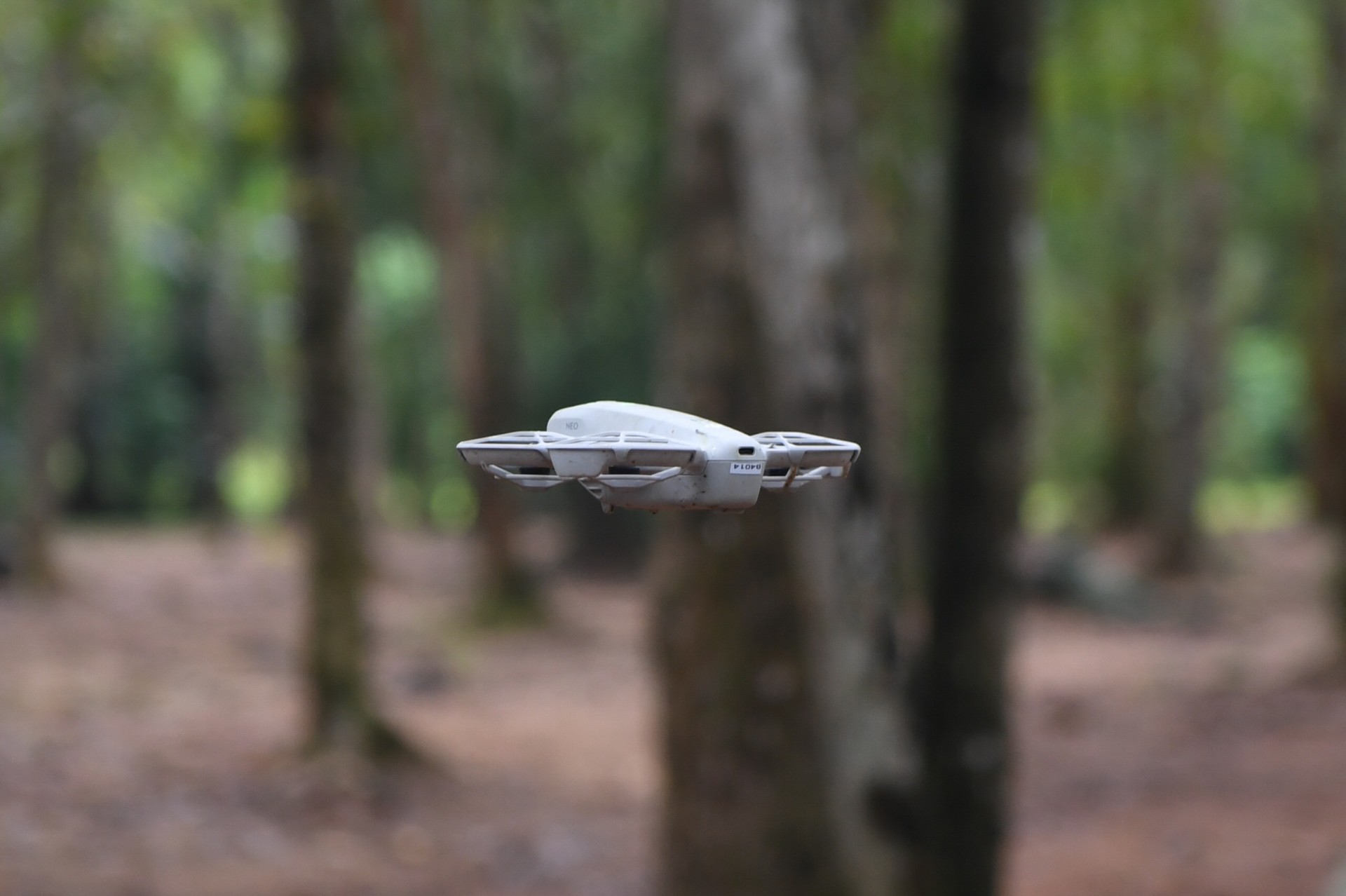
Like the recruits before them, their outfield training included the usual shellscrape construction lessons, fire movement and the basics of how to survive in tough conditions.
But this company has gone through something that no other recruits have – they are the first batch to experience drone training during BMT.
This is part of efforts to familiarise recruits with the usage and countering of drones in the larger operations as they progress in the Singapore Armed Forces (SAF).
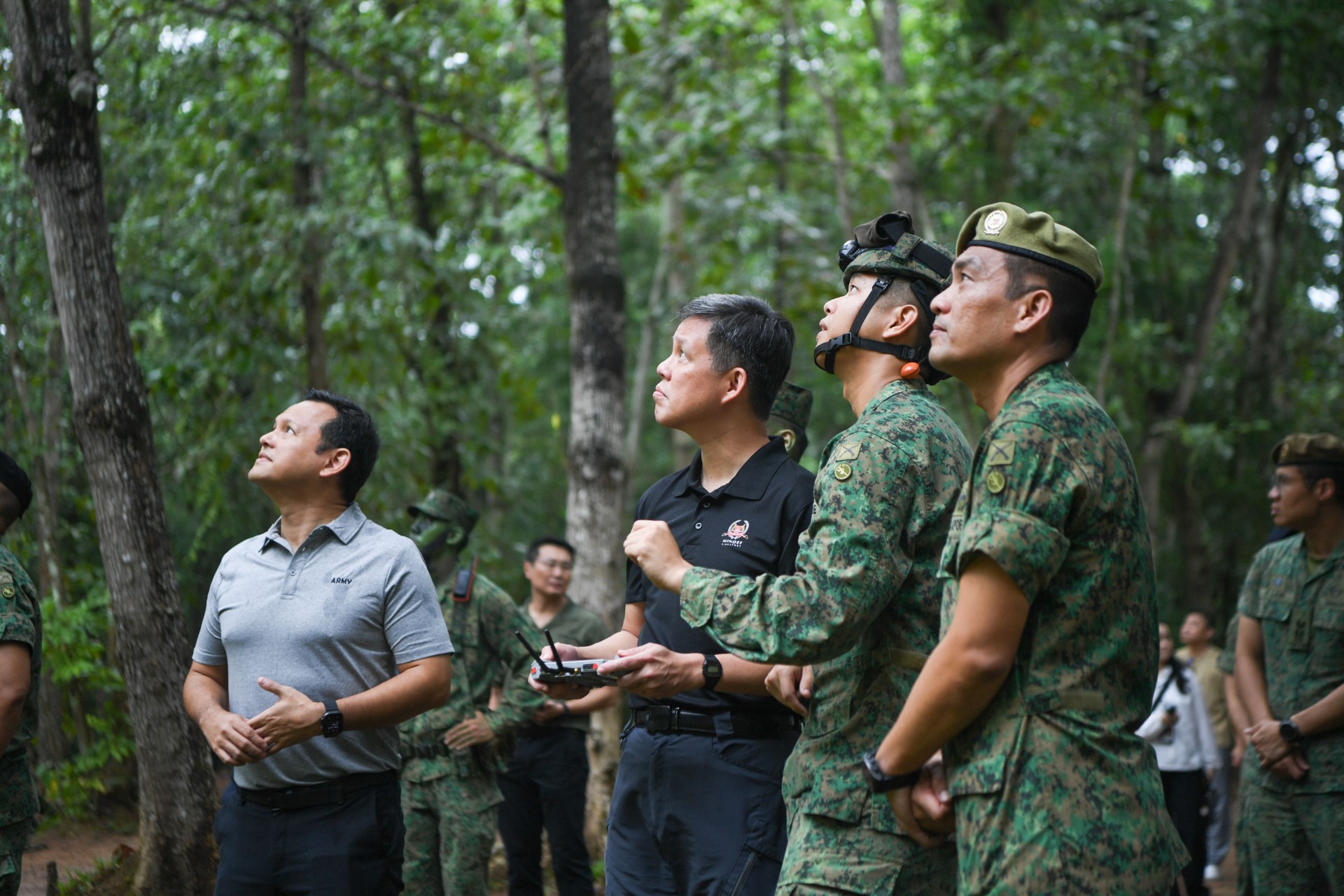
Speaking to the media during his visit, Mr Chan spoke to the importance of being aware of drones in modern operations and how training with drones help soldiers gain a three-dimensional spatial awareness.
"Training our soldiers in the use of drones is not just about technical skills," said Mr Chan.
"It's a larger exercise in developing their three-dimensional spatial awareness, and when they know how to apply the (unmanned) weapon system they can fight better."
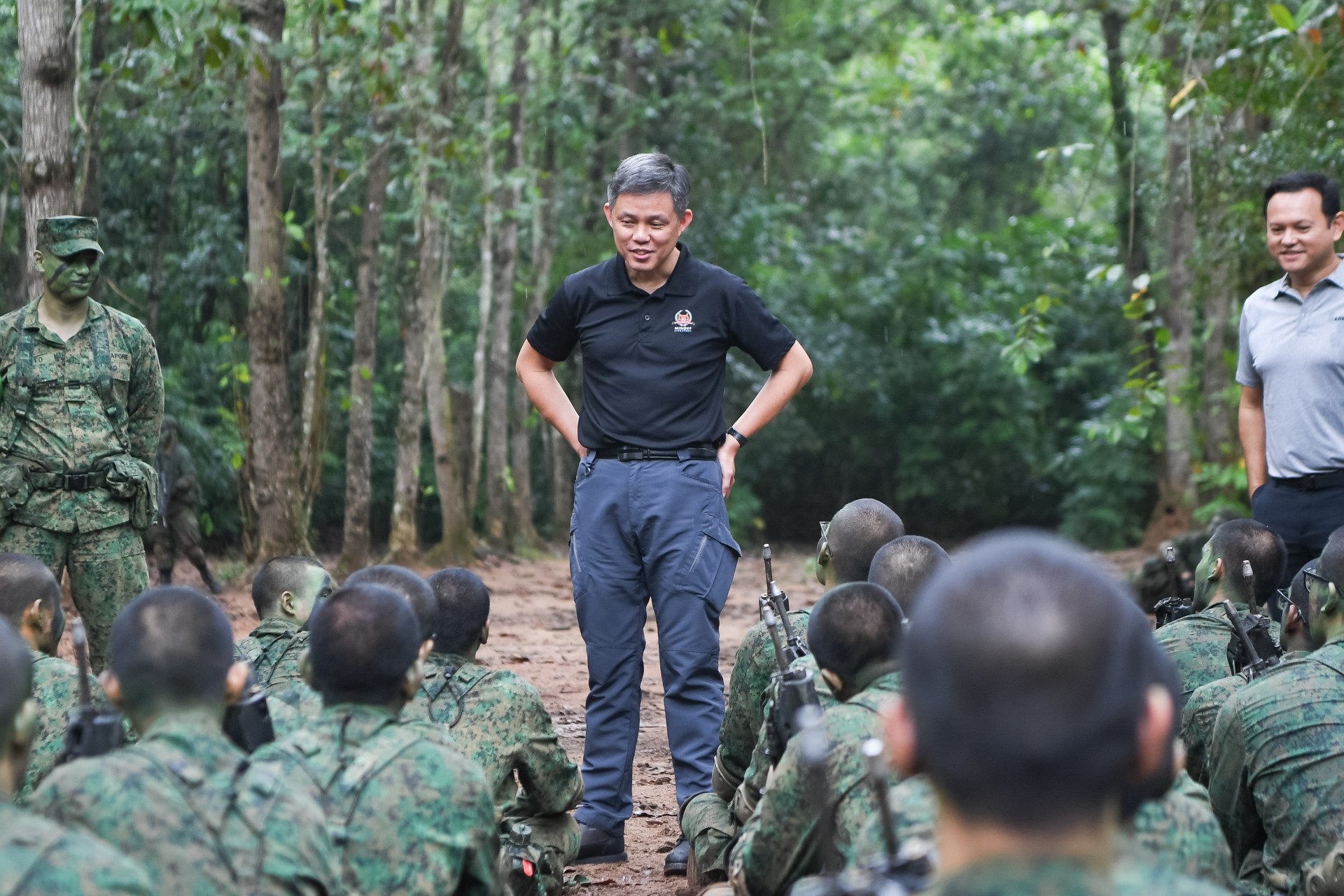
“With the proliferation of drone technology, drones will increasingly be in the hands of our forces as well as our adversaries,” said Mr Chan.
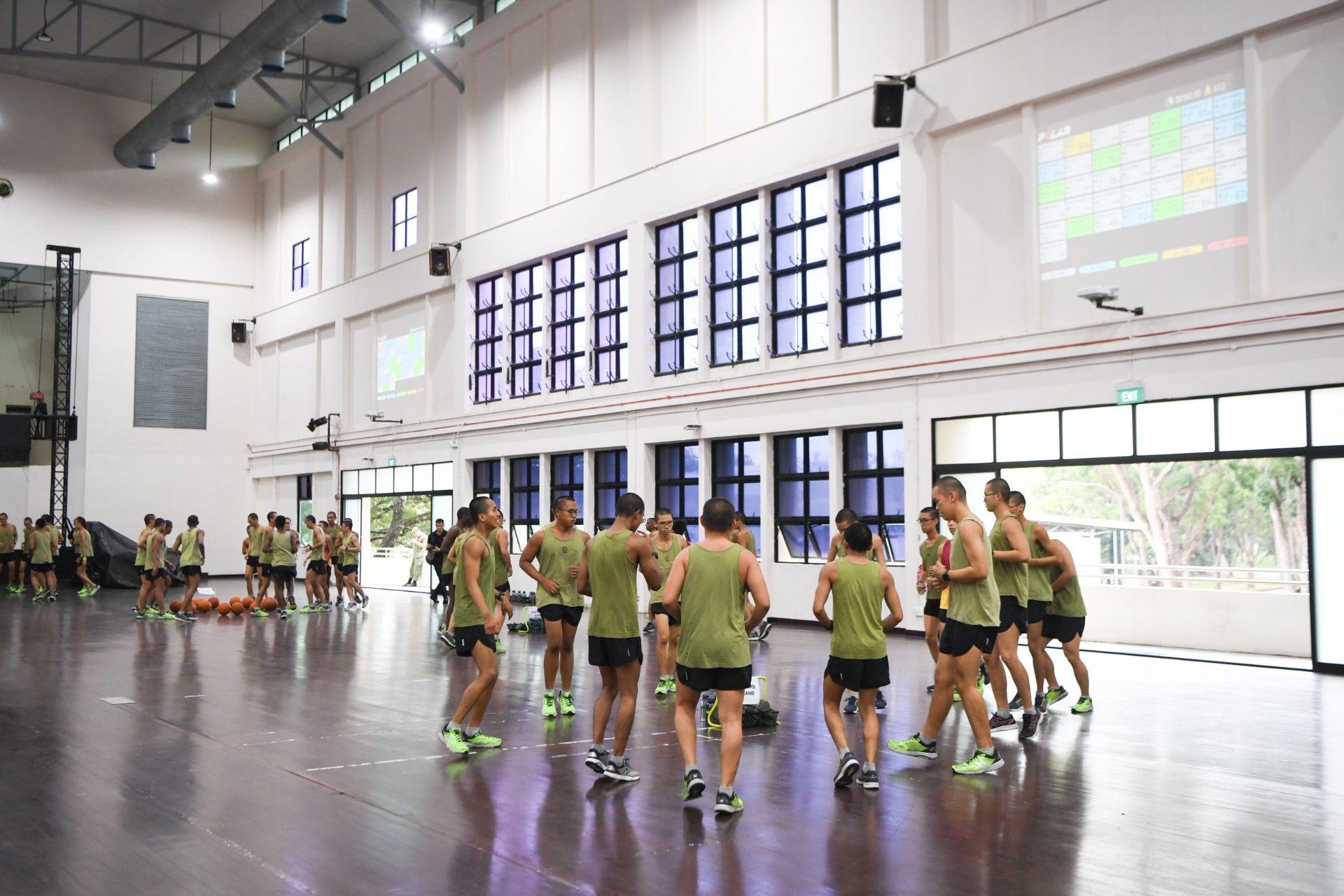
Boosting training with science and tech
BMTC has also helped improve the training experience and its results using technology.
During his visit, Mr Chan also saw the use of wearable fitness trackers, issued to all recruits in BMTC, and how it incorporates into the training programme through science-based training methods, such as Heart Rate Zone Training.
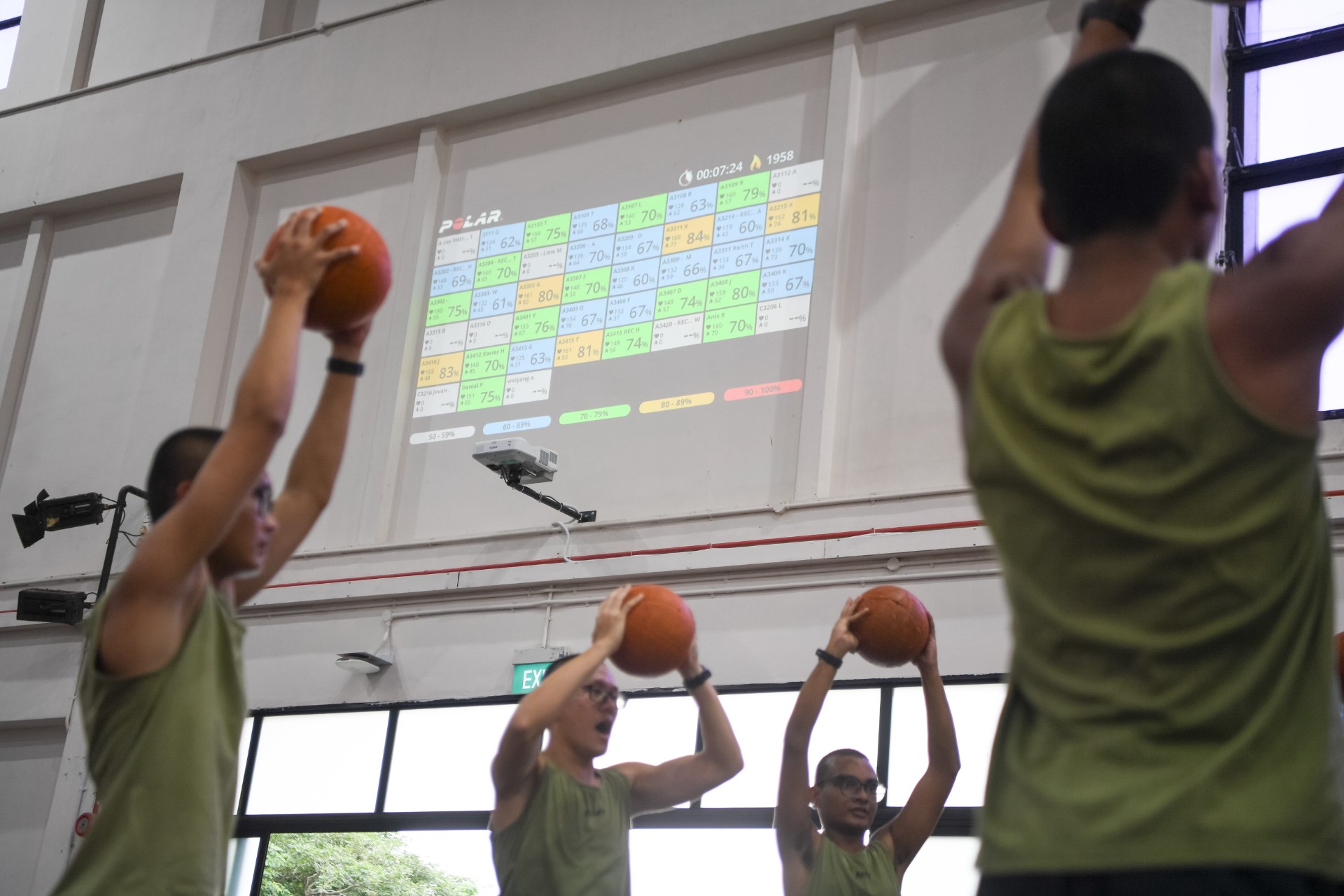
With the fitness wearables, soldiers can receive individualised training at the appropriate intensity and pace, and commanders are better able to identify recruits who may need more attention and make the necessary changes to their pace of training.
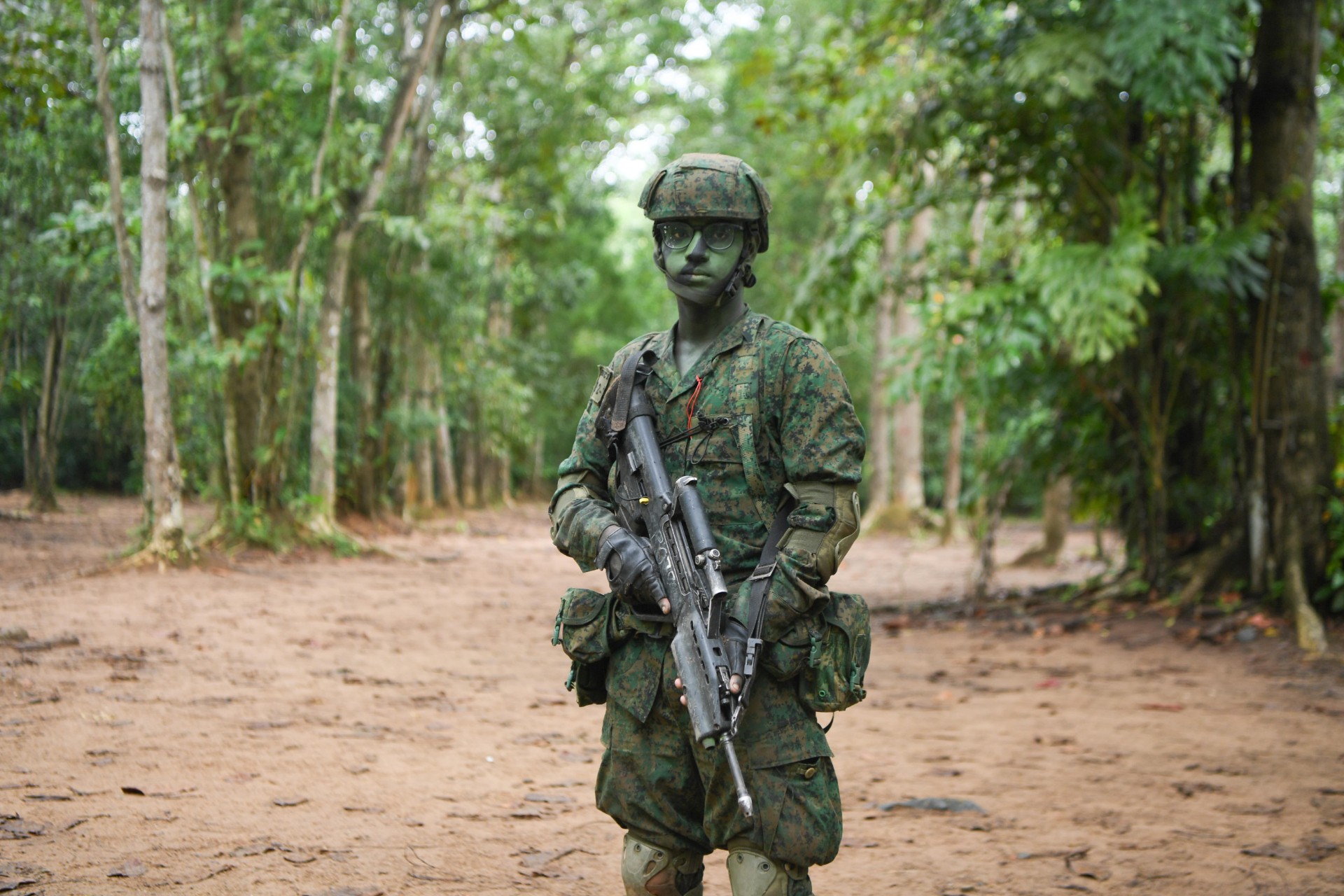
Recruit (REC) PR Udayakumar, who has a diploma in Sports and Wellness Management from Nanyang Polytechnic, is now currently serving as a Full-time National Serviceman.
Speaking of his BMT experience thus far, he said that the wearables and science-based training helps keep the training at a suitable pace for himself and his peers.
Knowing his heart rate during training in camp also allows him to better track his own progress when he exercises outside of camp, helping to speed up his progress.
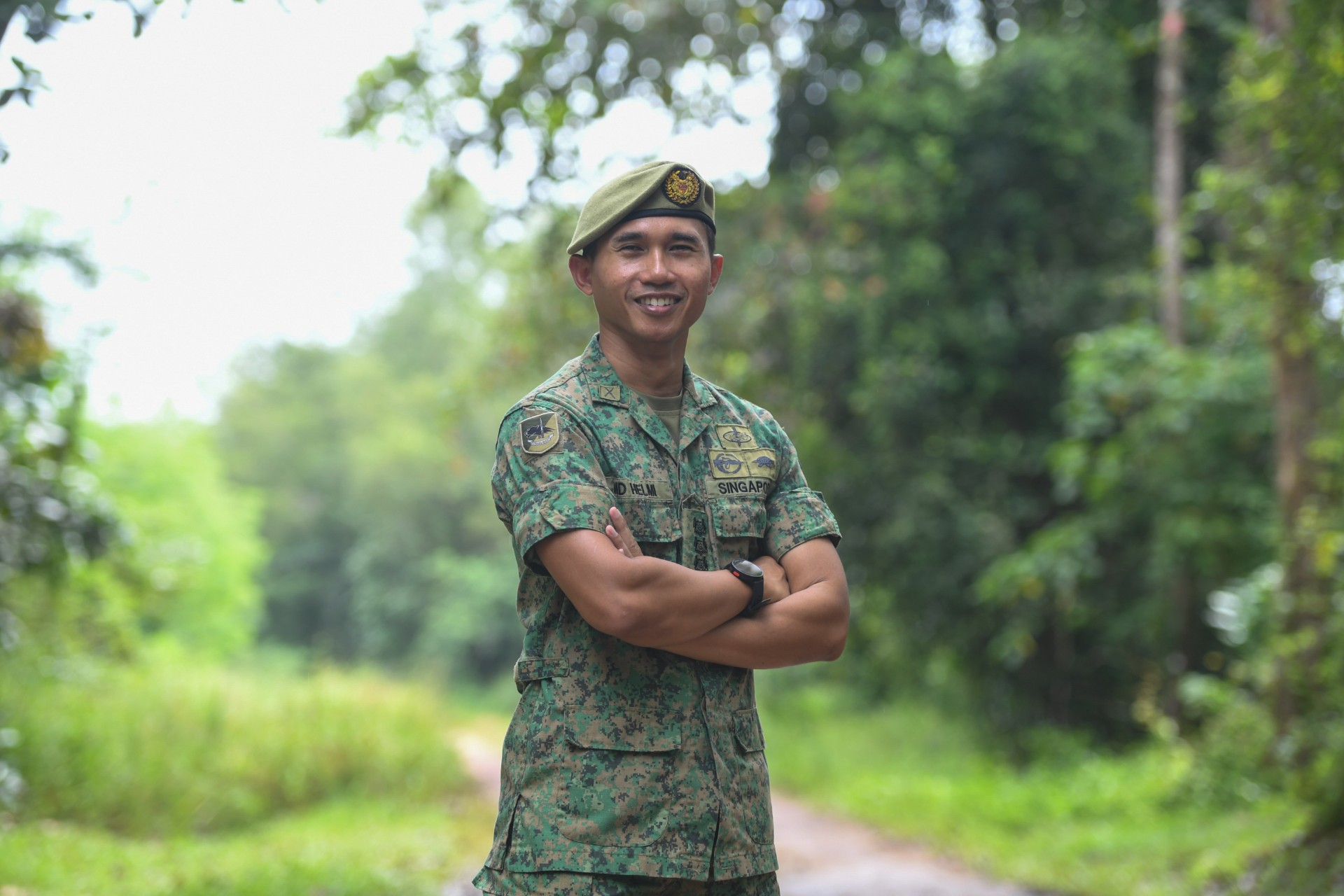
Improving the BMT experience
Commander BMTC Colonel (COL) Muhammad Helmi Bin Khaswan shared on changes to the curriculum for recruits, such as the lengthening of the adjustment period to four weeks.
This was a deliberate decision to allow soldiers to adjust to the military environment and have more time to focus on developing social cohesion and support amongst peers.
"It takes time for you to build your system of support, and social cohesion is what enables you to build greater resilience,” said COL Helmi.
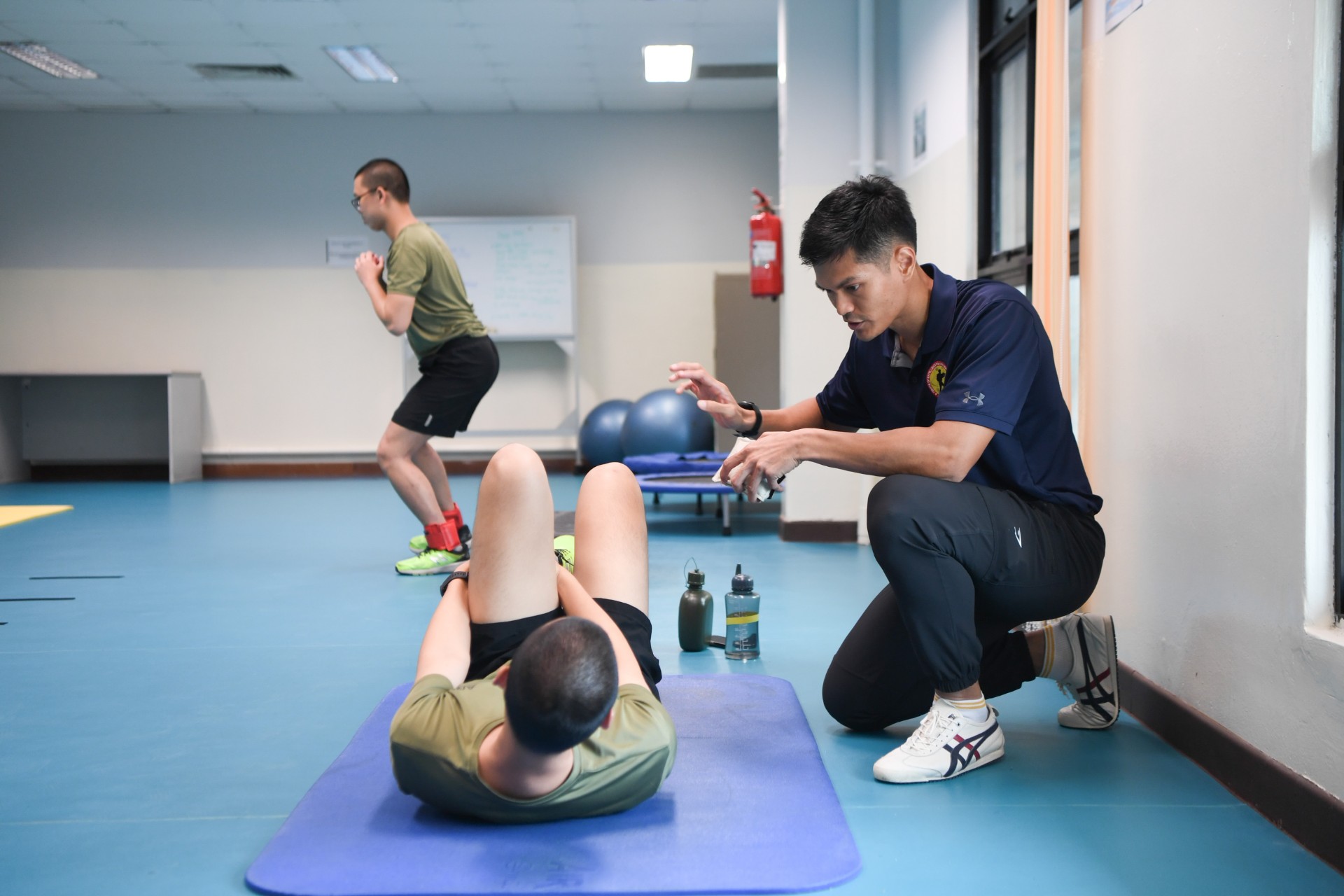
Other support initiatives come from areas such as the Soldier Performance Enhancement and Rehabilitation (SPEAR) programme, and the introduction of a Recovery Company in late-2024.
The latter helps recruits, who either enter BMTC with pre-existing injuries or are injured mid-way through BMTC, get professional physiotherapy on the island.
Working with G1 Army as well as combat trainers, the Tekong Physiotherapy Centre adopts a predictive model of treatment for recruits with pre-existing conditions.
Using this, the recruits' training regime can be better adjusted so that it is in line with their rehabilitation. This also helps to make the experience safer for soldiers.
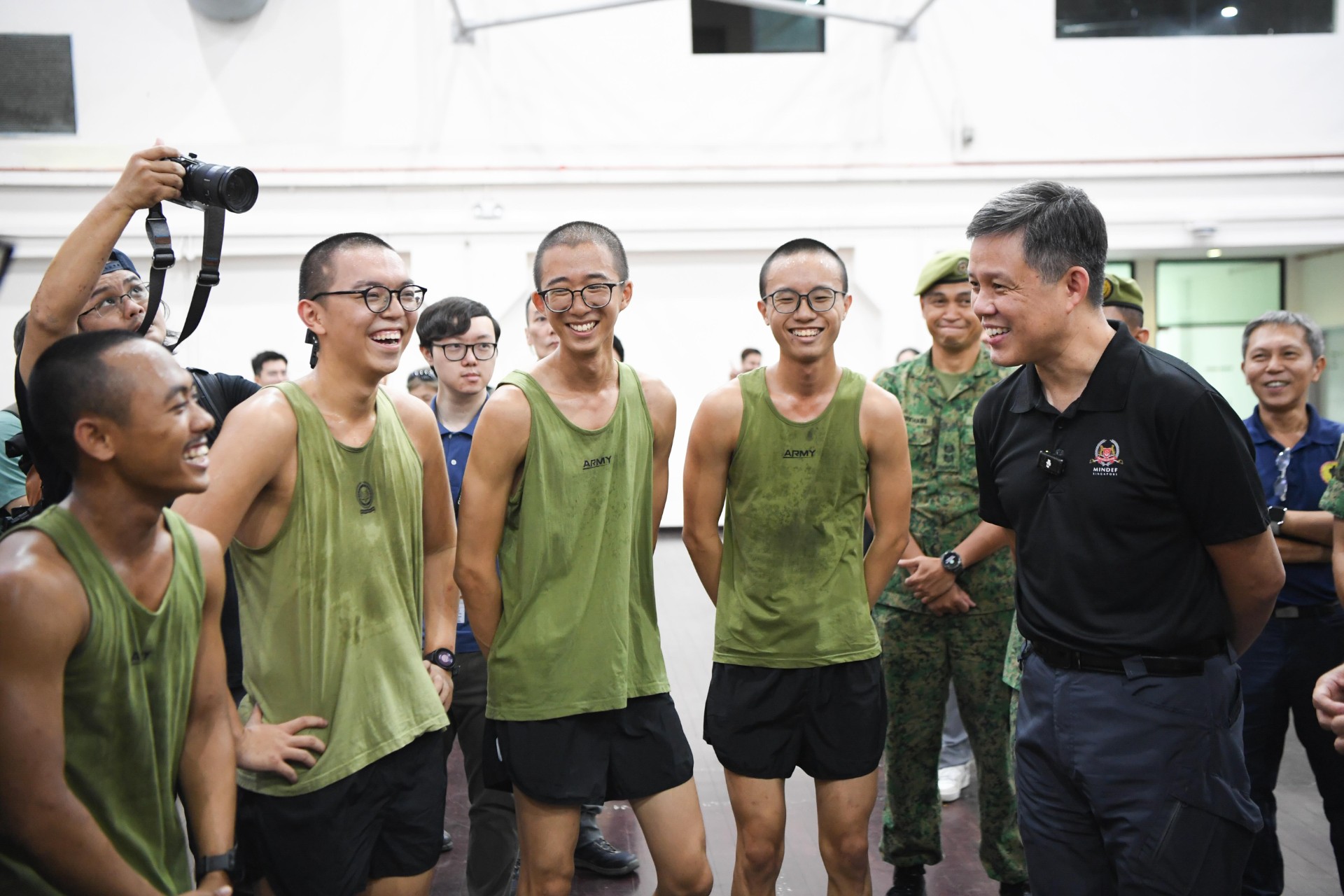
“Each and every soldier is important – the faster the soldier can recover, the more optimal his or her performance is,” said Mr Chan. “This helps the SAF better utilise our finite manpower resources.”
Mr Chan said that while technologies may be incorporated into the training and new science-based models adopted, soldiers must have the fundamental will to fight, and the mental and psychological resilience to overcome adversity.
“Keeping mental resilience is an important skillset for any soldier across the ages,” said Mr Chan.
To that end, Mr Chan said: “The SAF will continue to emphasise building up resilience and the will to fight in our soldiers.”
ALSO READ IN OPS & TRAINING
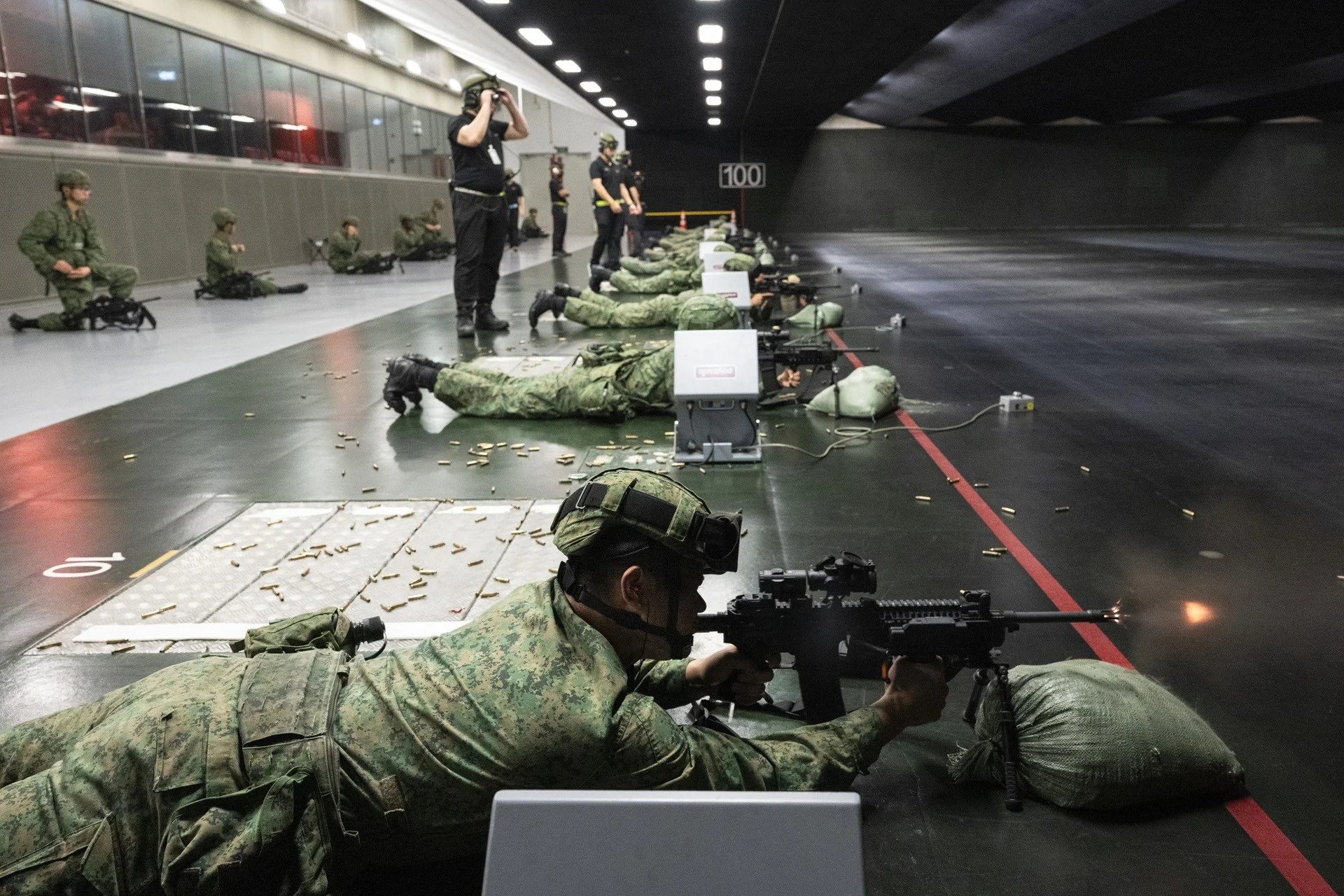
New firing range complex at Bedok Camp; Medical Classification System to be redesigned
27 Feb 2026
To train soldiers for a more complex environment, the SAF will build a new Multi-Mission Range Complex, as well as introduce opportunities for national servicemen to take on new roles, and more ways to volunteer.
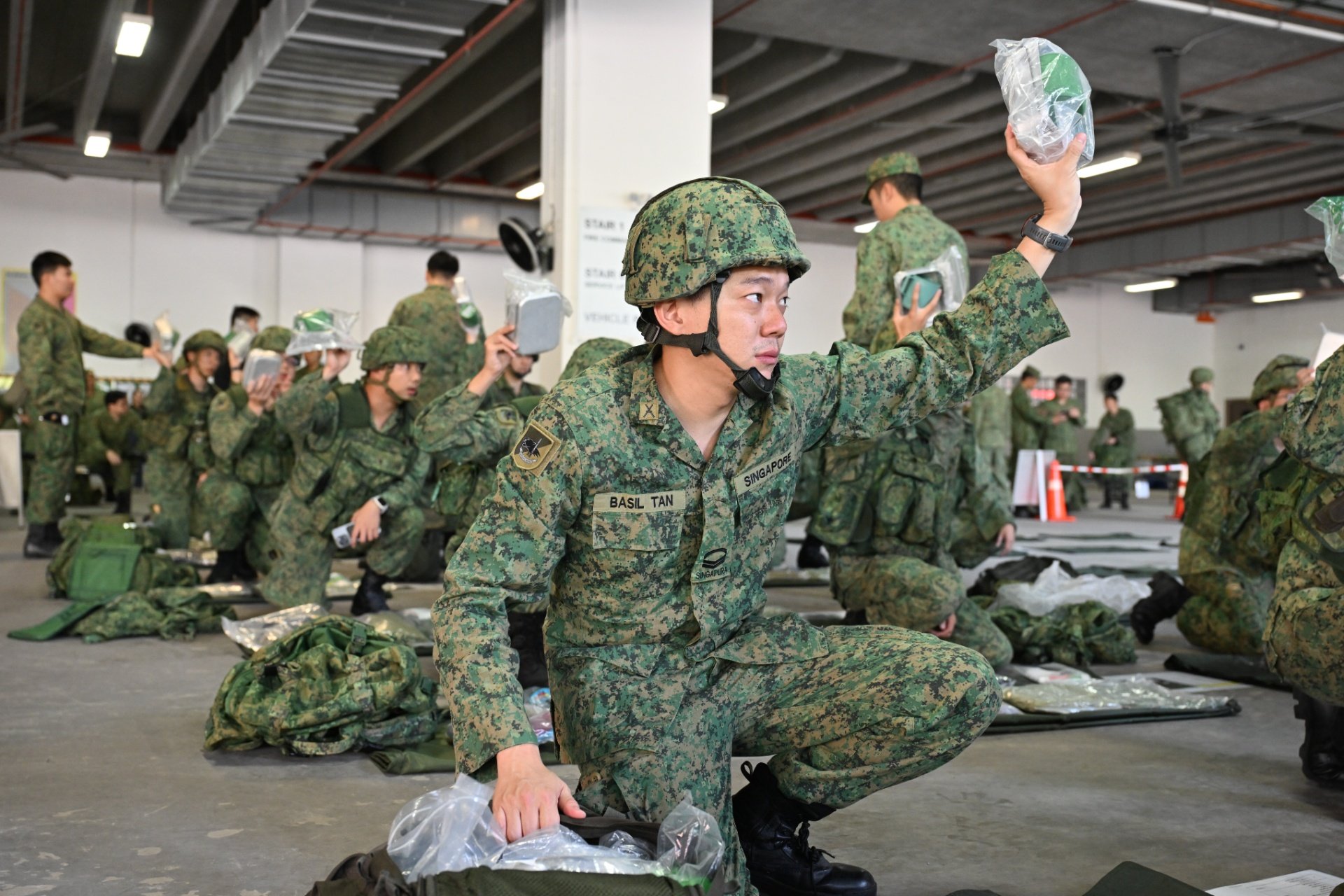
Reaffirming their commitment to defence
07 Feb 2026
Over 3,000 NSmen displayed their commitment to Singapore’s defence at a MOBEX in Selarang Camp.
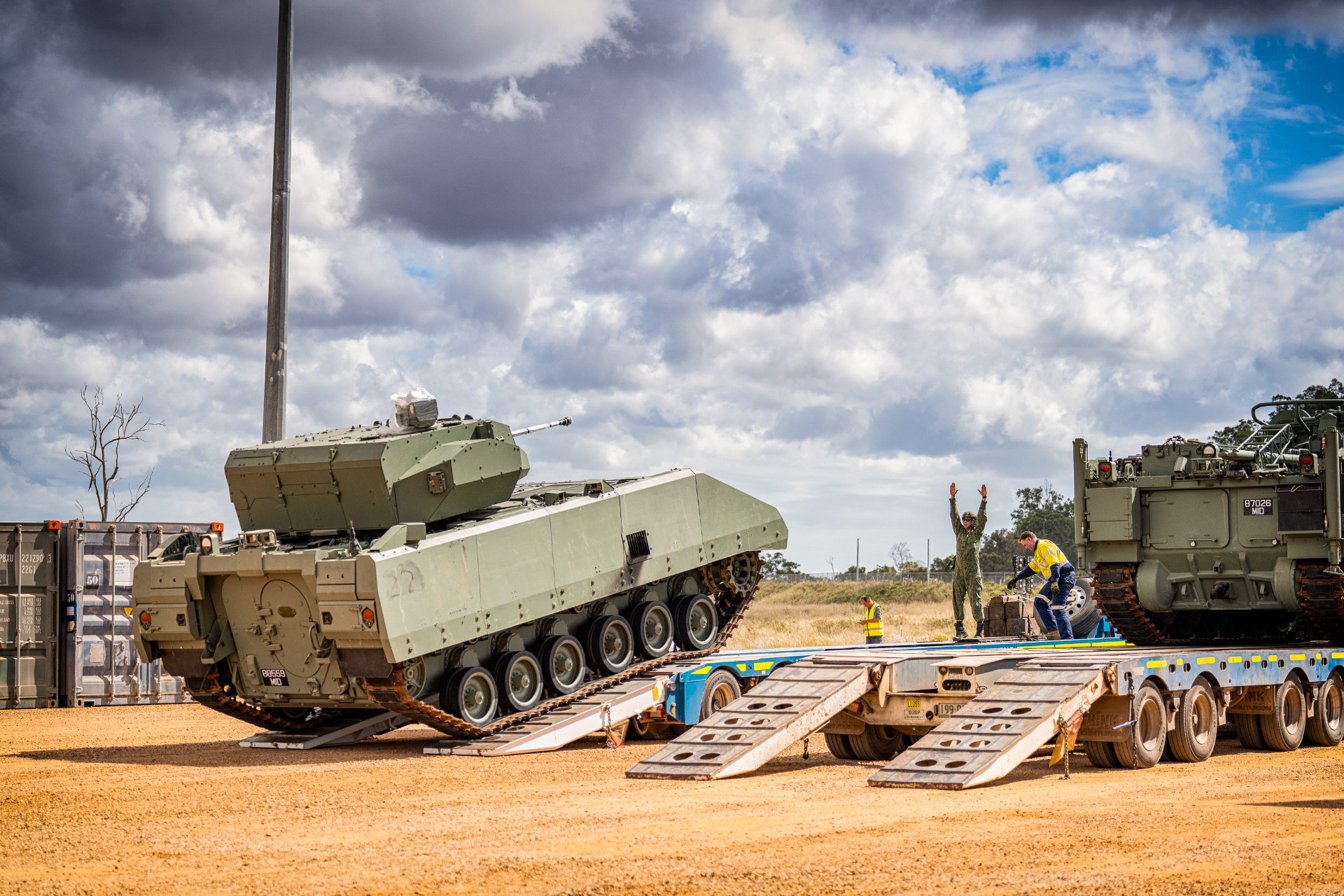
First in, last out at Ex Wallaby 2025
06 Nov 2025
Meet the teams who toil behind the scenes to enable the smooth conduct of the SAF’s biggest unilateral overseas exercise.


